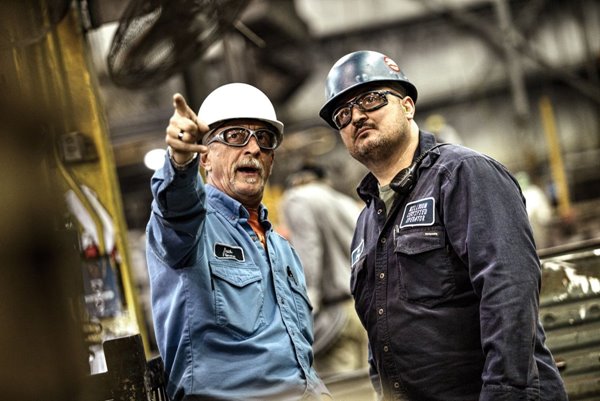Beaver Dam Manufacturer Contributes To Ventilator Supply Chain
Jamie L. LaReau and Phoebe Wall Howard | Daily Dodge
Beaver Dam Manufacturer Contributes To Ventilator Supply Chain
“It simply sits underneath the bottom of the ventilator to lower the center of gravity so when they wheel these things down the hospital corridors they don’t tip over,” says foundry owner Jim Kirsh.
The company typically manufactures between one-and-two thousand counterweights each year for GE Medical. Kirsh is now taking measures to ramp up production to at least twice that, just for their first order.
“They’re not sure of how many actual ventilators they’re going to need,” he says, “So there’s a sense of urgency not only for how much capacity we have – of which we have plenty to fill their needs – but also how quickly can we get these castings made, get them painted and get them into the receiving docks at GE so that they can get them into completed units.”
Kirsh says it is a simple enough part to make but the unprecedented demand is what’s testing his company. The counterweight can be made rather quickly. The challenge, he says, is delaying work for other customers, many of whom are also vital parts of the supply chain.
“For instance, we have a customer in Morton Grove, Illinois that makes large water pumping systems for municipalities,” he says, “These of course are vital for getting water into homes and hospitals.”
Kirsh also contributes to Thermal King truck mounted refrigeration units which he notes are critical for truckers to keep food refrigerated when it goes from the farmer’s fields or from the processing plant to the store. The company also makes water pumps for John Deere which he points out is needed by farmers to get their products into the field and continue the food chain into the grocery stores.
“So, the issue becomes, who goes first,” Kirsh says noting that the decision will have a rippling effect throughout other parts of the supply chain.
“We’ve made the conscious decision that GE goes first,” Kirsh says, “which necessitates a lot of rescheduling parts, working with other customers telling them that their parts may be delayed because GE gets priority.”
Kirsh says at peak performance they can make about 800 castings a day, fulfilling an order in about two weeks, but they are experiencing some worker shortages as more families have to stay home with their kids. However, he says flexibility in moving shifts is helping to alleviate some of that problem.

